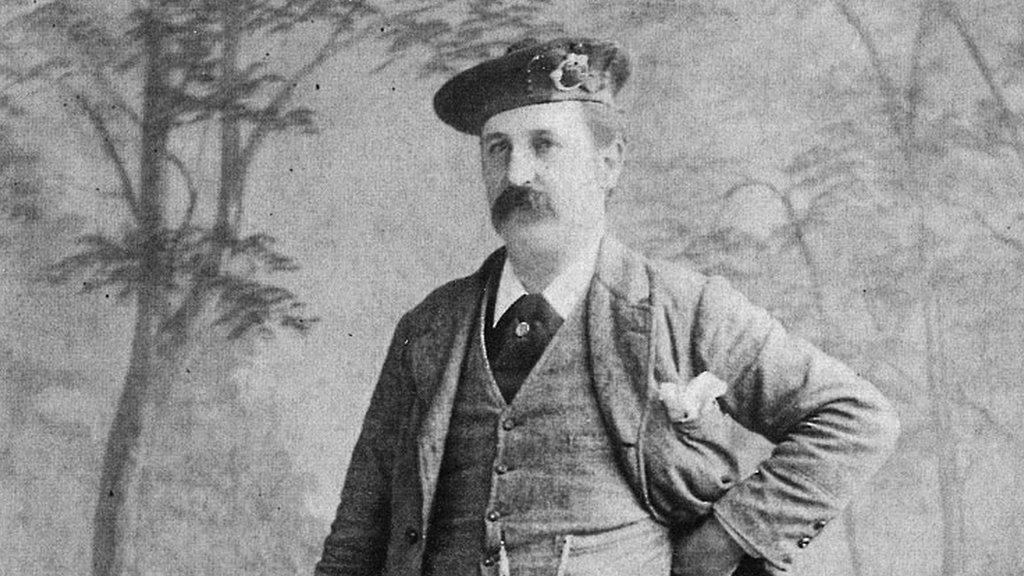Jack the Ripper victim Mary Kelly hunted by Richard III team
- Published
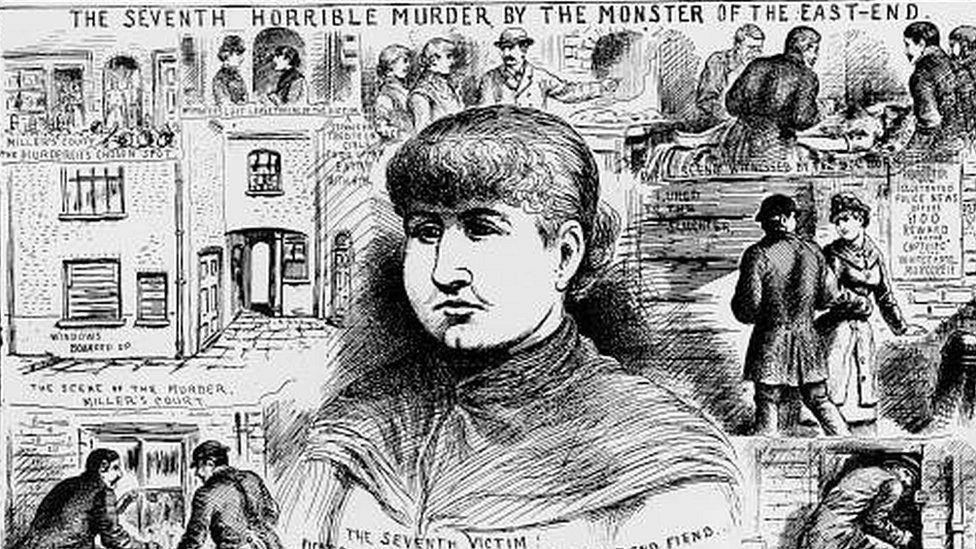
Mary Kelly's death was covered by an often confused and sensationalist press
The team which found Richard III's remains has revealed its role in a case of equal notoriety - Jack the Ripper.
Author Patricia Cornwell asked experts from the University of Leicester to track down his last victim, Mary Kelly.
Those who located and identified the 15th Century king under a car park in 2012 were approached to find Kelly's grave and analyse her remains.
The team said likely relatives had yet to be identified and also confirmed her bones may have been lost forever.
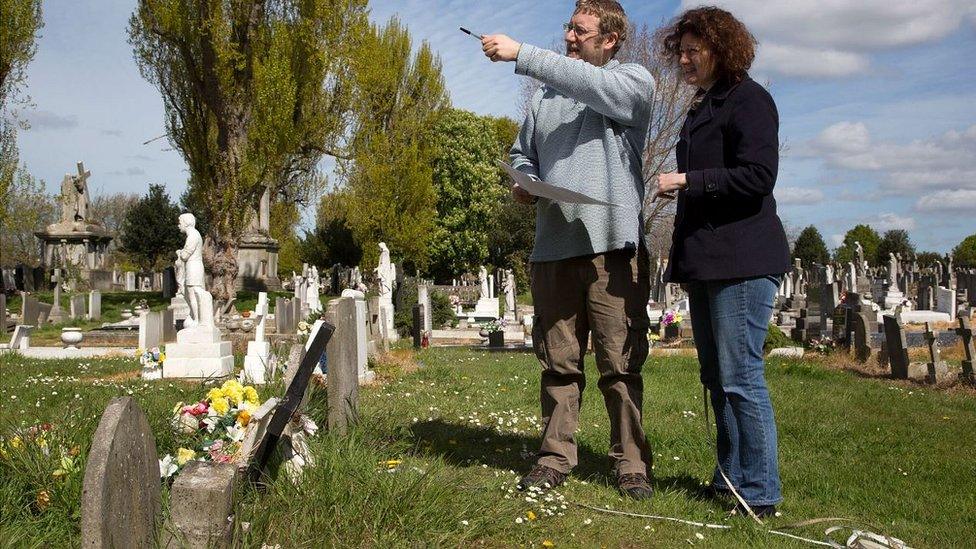
Archaeologist Mathew Morris and geneticist Dr Turi King surveyed parts of the cemetery
Jack the Ripper's violent crimes sent shockwaves through Victorian society in the autumn of 1888 with a series of increasingly grisly murders, external in London's impoverished East End.
Ripper historian Richard Jones said: "Mary Kelly is thought to be the last victim and is the most enigmatic.
"Almost nothing is known of her for certain - not even her name. All the information we have comes from what she told friends, and we know from the other murders that aliases and tall tales were common."
She was buried in St Patrick's Roman Catholic Cemetery, Leytonstone, on 19 November 1888. Despite many claims, the Ripper has never been identified.
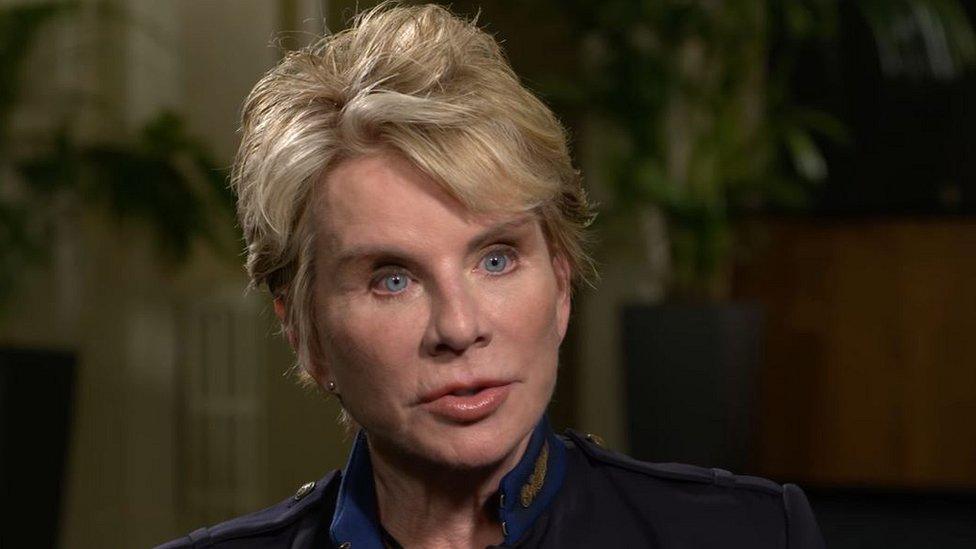
Patricia Cornwell is a best selling crime fiction author but has a long interest in Jack the Ripper
US crime writer Cornwell, who has just published a second book on the Ripper, said: "My focus is on the victims and I want to know what they can tell us.
"Mary Kelly's remains, in particular, are of enormous interest because he spent more time with her body than any (of the other victims) because she was indoors.
"In addition we could give her the dignity she deserves and perhaps, through DNA, satisfy claims that she has descendants alive today."
Dr Turi King, who confirmed Richard III's bones through DNA matches with surviving relatives, had decided more evidence was needed to identify potential descendants of Kelly.
She said: "If we could locate the remains and securely identify them, then analysing the DNA would mean screening of potential relatives could go ahead.
"But, crucially, you would need to show there was a good chance of finding those remains and be more confident we have relatives to test."
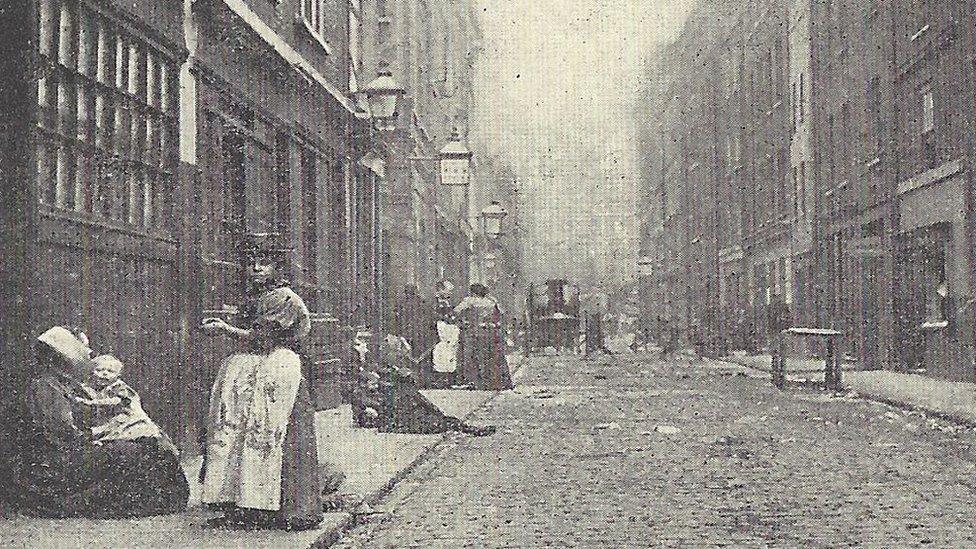
Mary Kelly lived down a grim alley off one of London's most notorious roads - Dorset Street
Archaeologist Mathew Morris and genealogist Prof Kevin Schürer also searched archives and surveyed the cemetery.
This confirmed the marker for Kelly's grave was only in an approximate location, and the area - set aside for local authority burials - had been heavily reused.
Ultimately the team decided tracing the grave, even if it had survived, would require a "herculean" effort with limited chance of success.
Dr King said: "Patricia was absolutely fine with it. She got us in to look at the issues and accepted our findings."
- Published11 December 2014
.jpg)
- Published8 September 2014
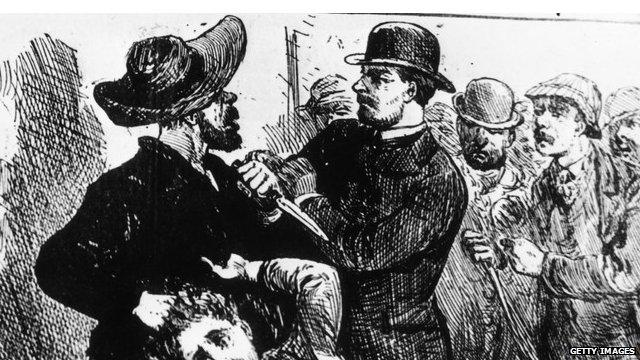
- Published14 August 2014
